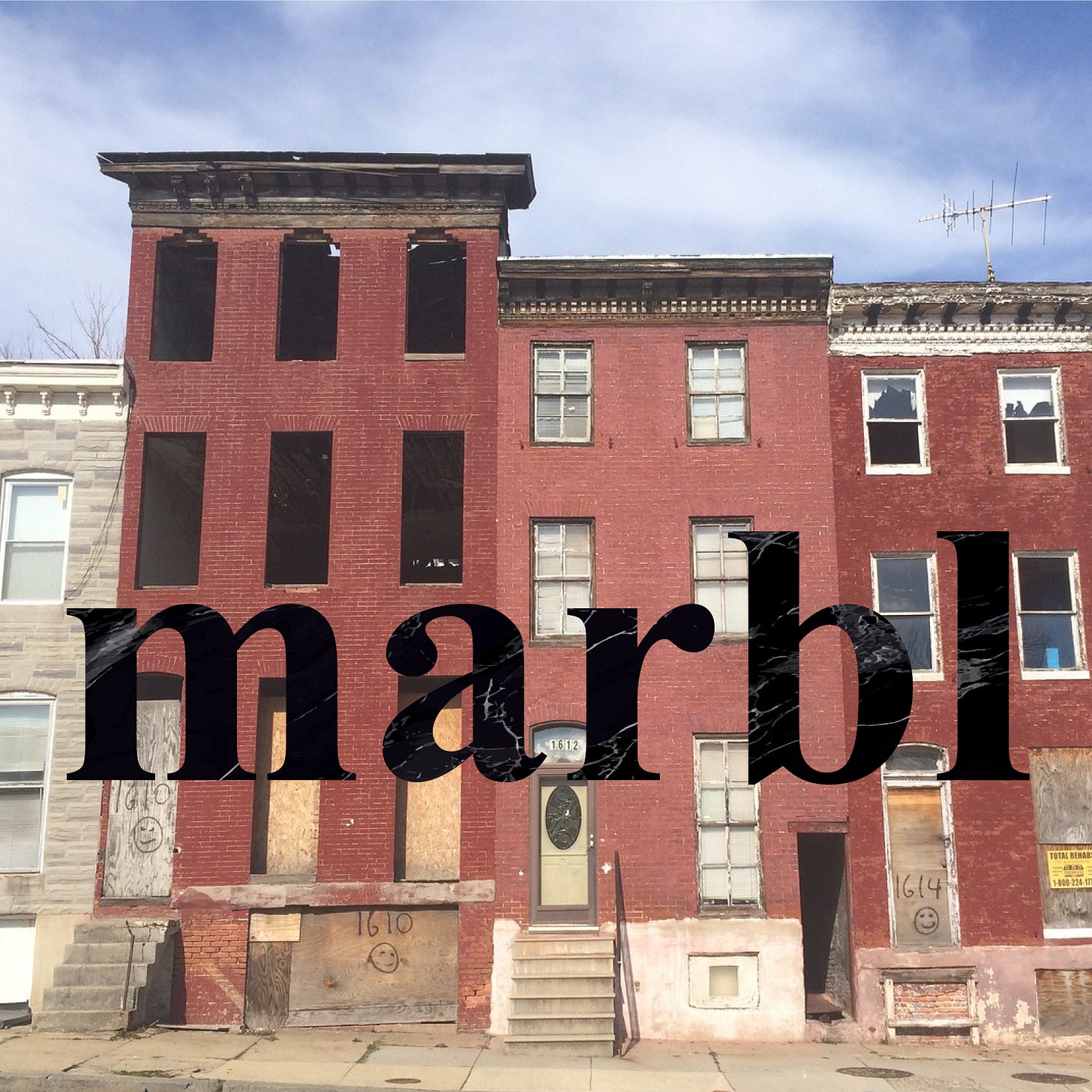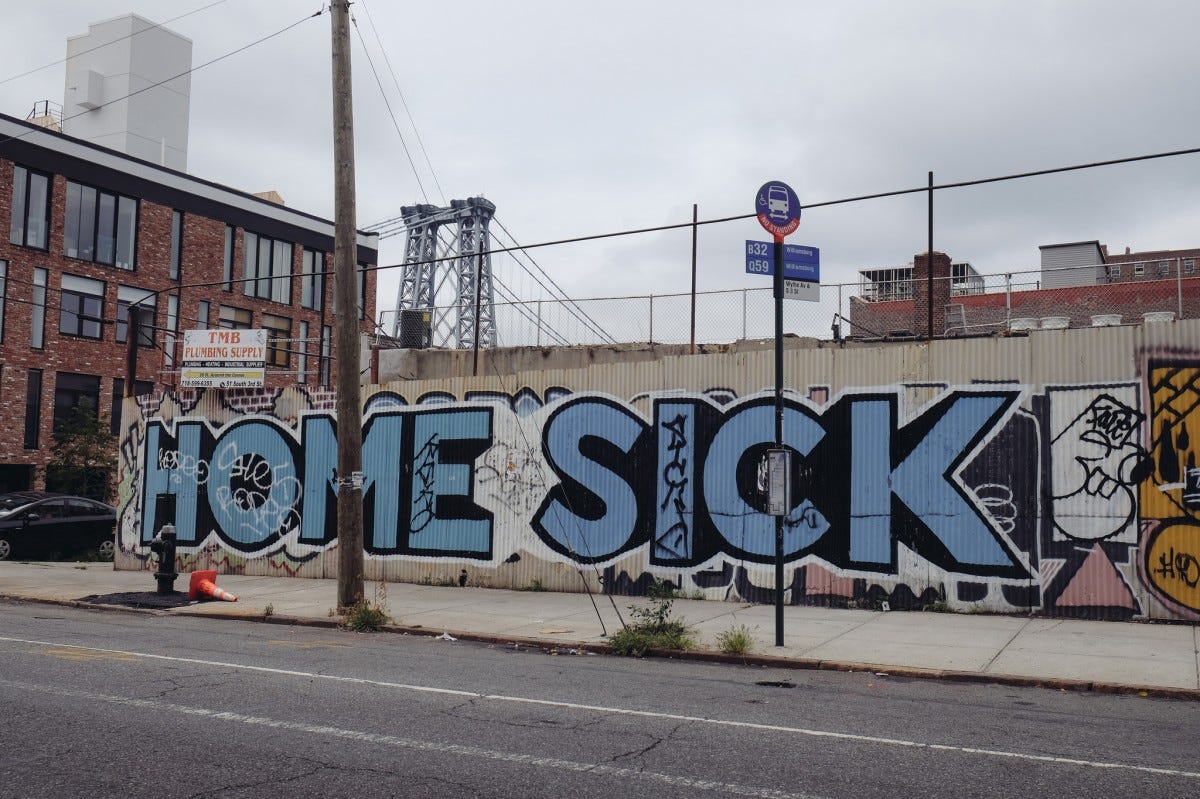Broader Forms of Loneliness
There have been a number of things on my mind lately. I’ve jotted down a few vignettes trying to get at the concern, but it dawned on me recently that they are connected to a topic I had written about a little while back: Loneliness.
We all know that loneliness is not about proximity, loneliness has become a grave problem. People are very severely set apart from circuits of inter-being.
Scour the web and you will find many examples of line charts displaying the declining metrics of fulfilled lives. But just step out on the streets and you can look the data in the eyes. There is a condition of separation that is necessary for this pattern of loneliness to flourish, and I think that we can trace the edge of this condition through many areas of modern life.
I’d like to start with two stories of encounters with homelessness and times when this condition of separation was lifted.
Homelessness: Act 1 Scene 1
When I was 8 my dad received a terminal cancer diagnosis, so my parents decided to spend the money they’d saved in 10 years of marriage on having as much fun together as we could. One of these expenses was a trip to Vancouver. I had grown up thus far in a thickly insulated Ontario small town. And it was on this trip that I learnt something new: there is something terrible happening and we call it homelessness.
People don’t like to talk about homelessness. Nobody had mentioned it to me in the previous 8 years of living. Nobody thought to warn me beforehand, nor would even explain it to me. When you are that new to the world—and all you have known is a very narrow and carefully cultivated slice of human life—you really can’t understand what you are looking at in terms familiar to the regular discourse surrounding it. You’re a child. There is nothing which would motivate you to exile certain types of people as a particular concept in your mind. And that word, “homeless” which you’re given to apply to them, leaves out a really crucial part: Why?!
That trip was full of novelty and intensity, but one of the stickiest memories was from the second nigh. That evening Me and Dad were to have a daddy-daughter dinner date, just the two of us. But outside the restaurant there was a man begging. Looking back, I feel like I have never seen such a sorrowful sight in my life, but I know too that I was very sensitively experiencing these scenes. This man was not begging in the disaffected way which had been pretty easy for my parents to evade discussion of. This guy was pleading, crying, making an intense and sorrowful appeal for help. He used that word, “help me.”. And it was the strangest thing, not a single person even looked at him. A street full of human beings were not even making eye contact with a person speaking directly to them. I sobbed through dinner. Probably ruined a bunch of peoples evenings. Dad brought me back earlier than planned. Through the storm of my tantrum I just kept asking him “Why? Why could nobody help that man?” But my dad, who normally knew everything, couldn’t tell me why.
Homelessness: Act 3 Scene 4
Fast forward, my dad died, it was just my mum for another 10 years, During which time I learnt to stop asking questions about homeless people and to accept their presence in cities as natural. I learnt especially from city born friends that it is permissible to address them only by offering change. Although some had even expressed disapproval at this form of interaction. “They”, were now a fully defined category of people with whom I have extremely strict conventions for dealing with, despite speaking very narrowly if at all on the topic.
Around the time I left for college, my mum met a man named Gord. Step-fatherhood is a tough thing to get right. But Gord was a wonderful man who I came to really love, and who was so obviously a blessing in my mum’s life. She spent another 10 good years with him, but a few Christmases ago he passed away, also of cancer.
Recently however, I was walking around downtown Montreal—Gord grew up in Montreal—when I passed by a homeless man. This was not someone who appeared intoxicated in any way, he was just a calm presence whom I felt carried the sense of feeling broken and left-over. He was holding a paper cup, and in the awkward guilt-tensioned manner I have adopted in passing by homeless people, I went up to him offering change while bowing my eyes to his cup. However when my gaze lifted up, I found a face of uncanny resemblance to my late step-father, and suddenly felt like I was seeing a beloved ghost.
It hurt. I felt this strange haunted need to grab his hands. it hurt in ways I didn’t really know how to digest. My eyes brimmed with tears which, since the age of 8, I have learnt I am not permitted to let out in public. I didn’t have my dad to console me, nor my step-dad either, but the world did still have this man and here he was, on the street with no one making use of the relational potential of his heart and being. Why was this man homeless? I’m not naïve, maybe he is terrible, maybe he is violent, most probably he himself is not making use of the full relational potential of his own life. But I couldn’t shake this weird image that somewhere there was a woman, who would resemble my mother, to whom he should belong.
Homelessness; an issue
Now I know there are a lot of people doing rigorous and difficult work in this “field” which I respect immensely. I know that the “problem” floats inside of a very complex set of circumstances. I know that I am not any more informed than another pedestrian on the street. Especially considering how little we like to even talk about this “issue.” But that is exactly the interesting thing here: We all begin to think about homelessness long after we have already been taught not to think about it, not to get close to it, not to look it in the eye. Concepts are how we see the world and within the concept of homelessness there comes pre-packed a whole host of fears and emotions. At a young age we start to exile certain circumstances and behavioral themes outside of usual life. And yet it seems like homelessness is only getting more and more usual.
I want to continue in my method of avoiding the details which would normally be put under great scrutiny in favor of trying to find some room to stretch our feelings around. How did homelessness make you feel as a kid? How do you feel when you are addressed with their appeals? How did you learn to ignore them as they look and speak to you? I know personally, it is always a very strained encounter, and I can see how it would be much easier to well and truly exile them from my notice, by completely refusing them all but the most ambient attention.
We live in a time dominated by a certain form of being which seeks to ‘solve problems’. And it is often that framing which results in the things we choose to problematize. But loneliness is not a problem, because there is no solution. You cannot prescribe friendship, as a form of love it requires its own freedom in order to emerge. Perhaps the only cure would be sociopathy, and in fact it seems like we turn to a mild form of that as prophylaxis for our exposure to homelessness. But this isn't actually a cure, because that is the loneliness.
Homelessness: A Loneliness
In the above two stories I've tried to describe moments that were powerful enough to drop the conceptual veiling of a certain class of persons. But what I am not trying to suggest, at all, is that homelessness is loneliness in the sense that homeless people are necessarily lonely themselves. On the contrary the ones I've know better than not seem to have active social lives.
What I would like to say is that homelessness contributes to the epidemic of loneliness because as a phenomena it reifies and normalizes having exiled classes of persons, we make real exile in the world and infuse the flesh of our body with a conceptual bridal that is founded in separation. It is those who most strongly see people as only homeless who suffer from loneliness. It is the prophylactic sociopathy that walls us from everyone, not just those we wish to exile, and perhaps mostly from ourselves. Maybe that is a walking pedestrian who sees others as only homeless, maybe that is the one sitting and begging who sees himself as reduced to that.
Community is often cited as the treatment for loneliness. And oddly, in our contemporary world the meaning of the word ‘community’ has shifted from a collection of people who span multiple categories and classes of people to one that entrenches these classes and categories along lines of identitarian details. But that other cure for loneliness, Friendship, cannot be prescribed because it is the healing itself not the drug that suppresses the symptoms.
The parts of life which develop us into caves of inner spaciousness which requires a special loving attention from others to provide witness to, is the same one which allows us to conceptualize one another. The reason we can dehumanize and are more possibly lonely is the same tool which lets us individualize and create ourselves, into beings who can more deeply connect.
The Waiting Room:
I saw a homeless woman the other day with a load of bags. She was packing and unpacking them, rearranging the contents. I saw her on several occasions in the same place. She did not appear to be going anywhere any time soon and yet each time I saw her it felt like she was waiting for something. Her mannerism betrayed the ‘are we there yet?’ anxiety of someone in an airport terminal, those infamous no-wheres from movies like Lost In Translation.
For me it kind of highlighted the fact that modern society doesn’t have the authority of being fully inclusive. It is not a place that everyone can be a part of. I delighted in the way her uneasy presence seemed to pervert our current public space as an aberration of that ideal. it is this perversity that seems to disturb and provoke polite society into displacing these individuals. And like a hydra as we attempt to slay this “problem” with the sword of “solutions” it just multiples.







With the rise of automation, it seems that relying on other people's capabilities and skills is becoming less required. Before this, we needed to connect to others so that we could access the skills they had to offer. So now, we have to connect to others just for the sake of connection. Unfortunately, we have only started to have the opportunities to develop a sensitivity for human-only qualities now with all this automation. And in the process, we are starting to notice and decouple those important aspects so that we can cultivate them more.
Or maybe I am being naively optimistic.
Either way, these are skills we have to cultivate. We have to improve our relatability and relational skills. This could help balance out the oversaturation of loneliness I believe.